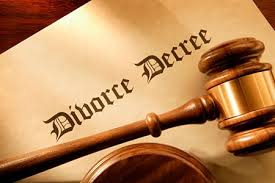 This article is going to look at the idea of changing your name after the divorce. In the majority, it is written for the female reader.European, American and many Hispanic cultures only require the wife to take the husband’s family name during marriage.
This article is going to look at the idea of changing your name after the divorce. In the majority, it is written for the female reader.European, American and many Hispanic cultures only require the wife to take the husband’s family name during marriage.
Many women decide to change their name either during the divorce or within a short time afterwards. There are a number of reasons to take this action; as well as a number of problems which present themselves if you do decide to change it.
Even so, a fair number of women do end up changing their name after the marriage is over. The procedures for making a name change vary from state to state and country to country. Therefore, we will take a very broad look at how it’s done in the United States and in the European Union. If the question of changing your name has left you slightly confused, then it is highly suggested that you whatever research possible on the internet to find the correct procedure for you for the city, state or area in which you live.
If you feel that there are enough other pressing issues, then leave the thought alone for the moment and come back to it later when you are feeling more clear-headed.
One of the questions a lawyer asks female clients during a divorce is, “Do you want a name change?” Many women are not sure how to answer that question. They just don’t know if they can, or should, continue using their ex-husband’s name. Whereas,some women are more than happy to carry on using their ex-husband’s name without any emotional issues attached to it.
The idea of reclaiming their maiden name appeals to many women:
Emotionally they want to go back to where they were before the marriage or there may be be negative emotions associated with their married name.
Another reason to change your last name is to avoid the multiple hyphens that can occur after repeated marriages. A woman could literally find herself with a name like “Katherine Marie DeLyle-Hyde Park” after her third marriage! Names like these are “red flags” to prospective dates that this lady has been around the track quite a few times.
An interesting new trend is for women to pick an entirely new name. They see it as a fresh start in life.
New last names can come from anywhere. Utt-Grubb said that,“Some pick a maternal grandmother’s last name or the name of another relative to whom they were very close. And some are even picking combinations of names. The new name is really a reflection of frame of mind and starting fresh.” (PR Web, Ibid).
There are a number of women who have not been content with just changing their last name. Some of them want a new first name, too, so they pick an entirely new name that represents how they see themselves.
The new trend in changing names is not isolated to just one country,or continent, or even to a newly-divorced woman. According to BBC News (2011), it is estimated that 58,000 people in the UK will change their name by the end of 2011. This is an increase of 4,000 on the previous year.
This increase has been confirmed by The UK Deed Poll Service. They have seen an increase of 30% compared with the same month last year.
Putting all emotional issues aside, there is one very practical reason for changing your name after your divorce. That reason is safety. Many victims of family violence are seeing a name change as a way to drop out of an abusive partner’s sight. Some, if the circumstances are severe enough are even changing the last name of their children.
The New Jersey Appellate Division led the way in a case entitled, The Application of E.F.G. to Assume a New Name. If you decide to take this route, then you need to make sure that your former spouse does not have your vital ID numbers such as your social security number (National Insurance number in the UK) or your driving license number.
One detective had great success in tracking criminals fleeing from arrest warrants. All he had to do was run their social security numbers through state employment reporting databases. People could change their names and locations, but the social security number always pinned down their location. Today’s use of the internet makes it even easier if you have the right identifiers.





